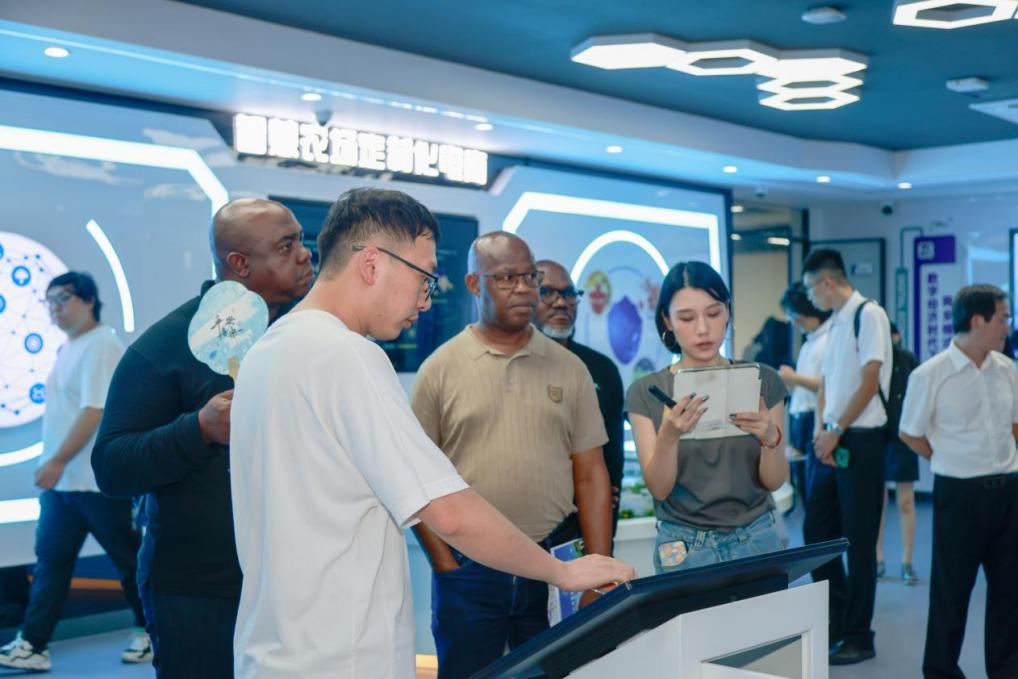On September 15, a delegation led by Mr. Johannes Sipho Shoba, Chief Operating Officer of the South African Wholesale and Retail Sector Education and Training Authority (SETA), visited Zhejiang Institute of Economics and Trade (ZJIET). The symposium was attended by Ms. Gu Xiaoran, Deputy Secretary-General of the "Belt and Road" Cooperation Special Committee of the National E-Commerce Vocational Education Steering Committee, and Dr. Lu Zhilei, Director of the South Africa China Culture and International Education Exchange Center. Representing ZJIET were Vice President Lin Feng, along with heads and faculty representatives from the School of Digital Trade, School of Business Intelligence, School of International Education, and the International Exchange and Cooperation Center. The meeting was chaired by Ms. Si Yinxia, Director of the International Exchange and Cooperation Center.
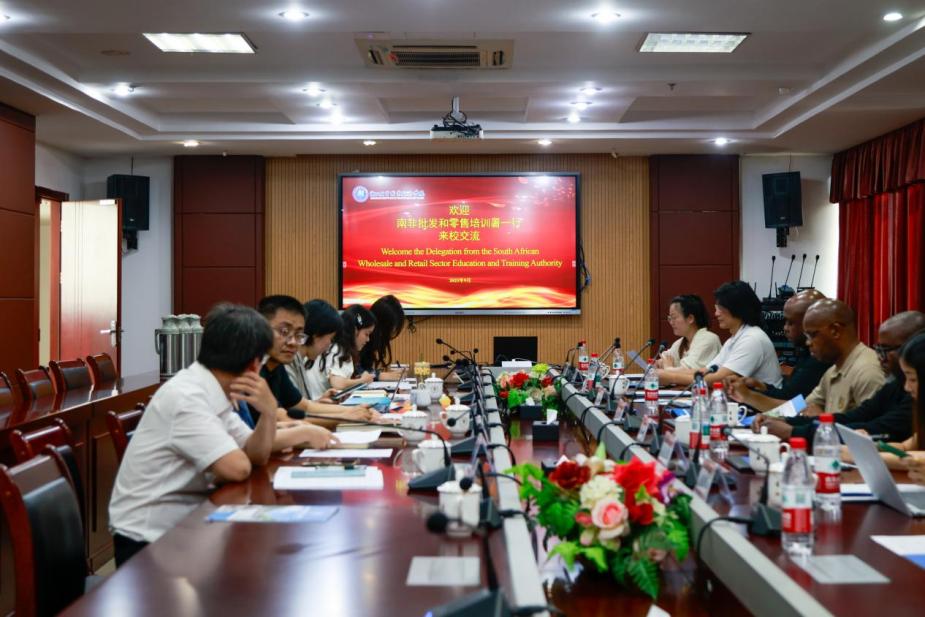
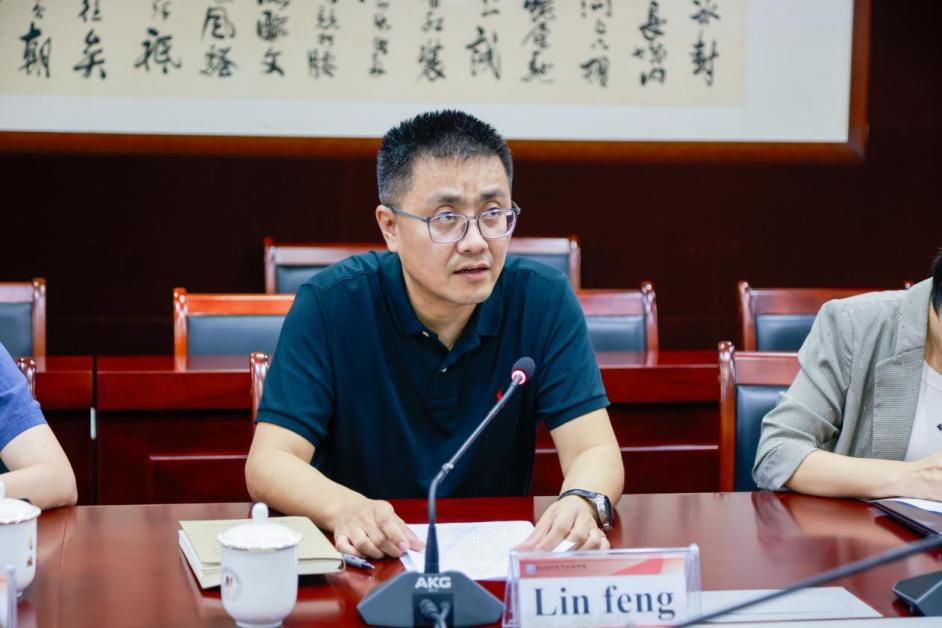
Vice President Lin Feng extended a warm welcome to the delegation and provided a overview of ZJIET’s educational philosophy and institutional strengths. He emphasized that under the guidance of the National E-Commerce Vocational Education Steering Committee, ZJIET actively promotes exchanges and cooperation with countries involved in the Belt and Road Initiative. He expressed hope that this exchange would facilitate collaboration with SETA in cultivating talent for the commerce and trade sectors. Proposed initiatives included student mobility programs (e.g., studying in China), two-way research projects, skills training, joint standard development, and cooperative education. These efforts aim to advance the cultivation of high-quality technical talent for China and Africa, support socio-economic development in both regions, and contribute to building a China-Africa community with a shared future in the new era.
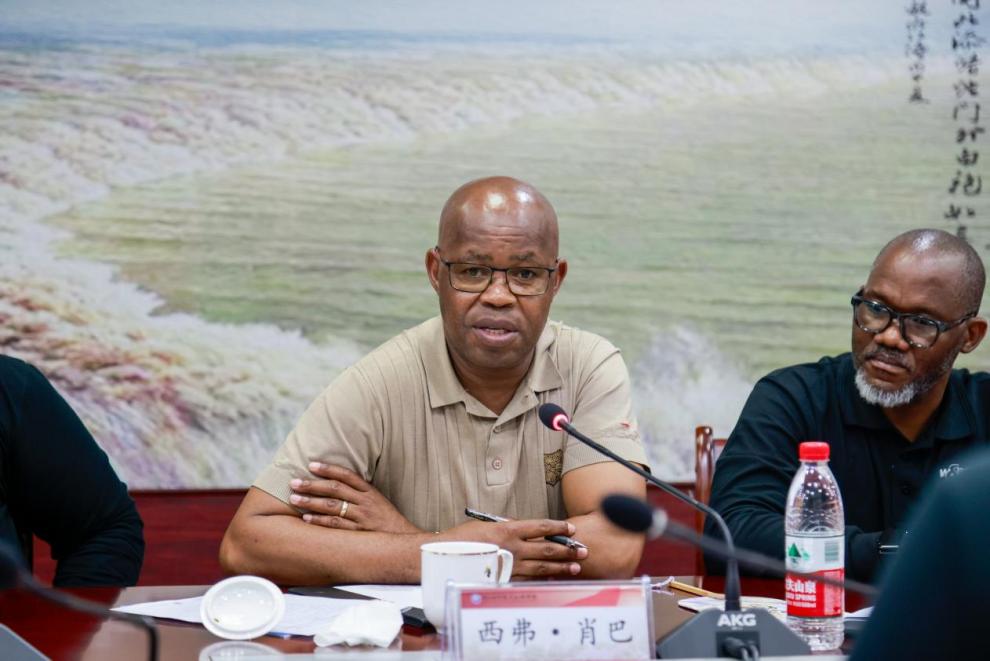
Mr. Shoba expressed gratitude for ZJIET’s hospitality and acknowledged the institution’s achievements in vocational education. He highlighted the South African government’s focus on developing the commerce and trade service industry, noting an urgent need for digitalized, interdisciplinary technical talent in the wholesale and retail sectors. Mr. Shoba expressed interest in learning from China’s experience in industry-academia collaboration and work-study integration, hoping to establish diverse cooperative projects to support South African students studying in China and create a long-term cooperation mechanism between SETA and ZJIET.
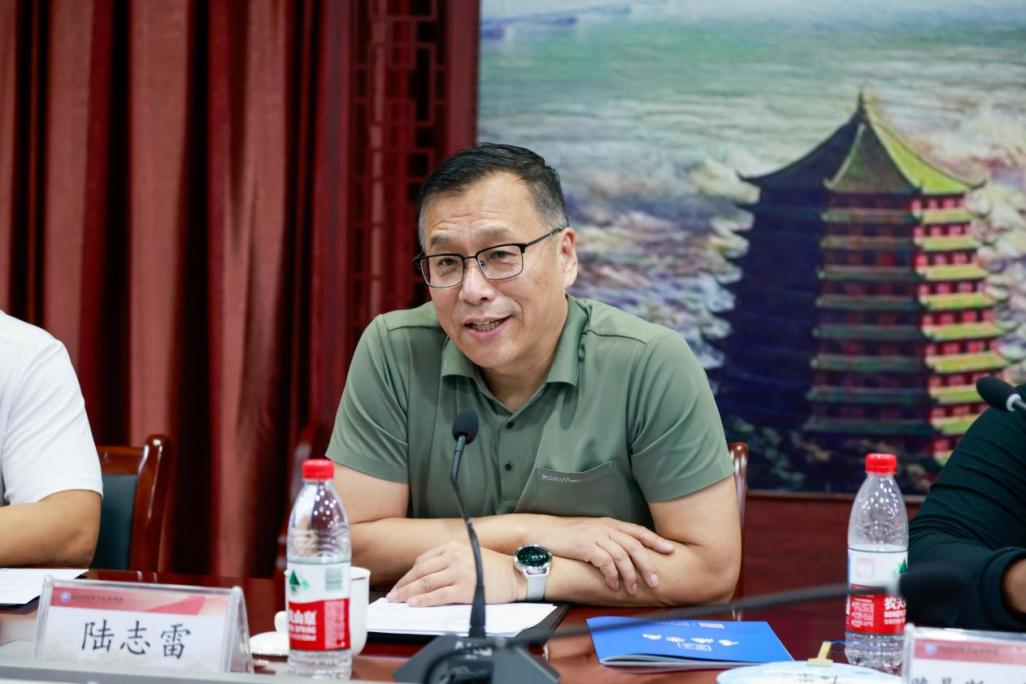
Dr. Lu Zhilei reviewed the center’s efforts since 2011 in promoting Chinese language teaching, skills training, and industry-education integration in South Africa. He praised ZJIET’s solid foundation and innovative practices in e-commerce education, expressing optimism about both parties collaborating under the guidance of the National E-Commerce Vocational Education Steering Committee to participate in the China-Africa E-Commerce Valley project. The goal is to develop it into a highland for cultivating skilled talent with influence across the African region.
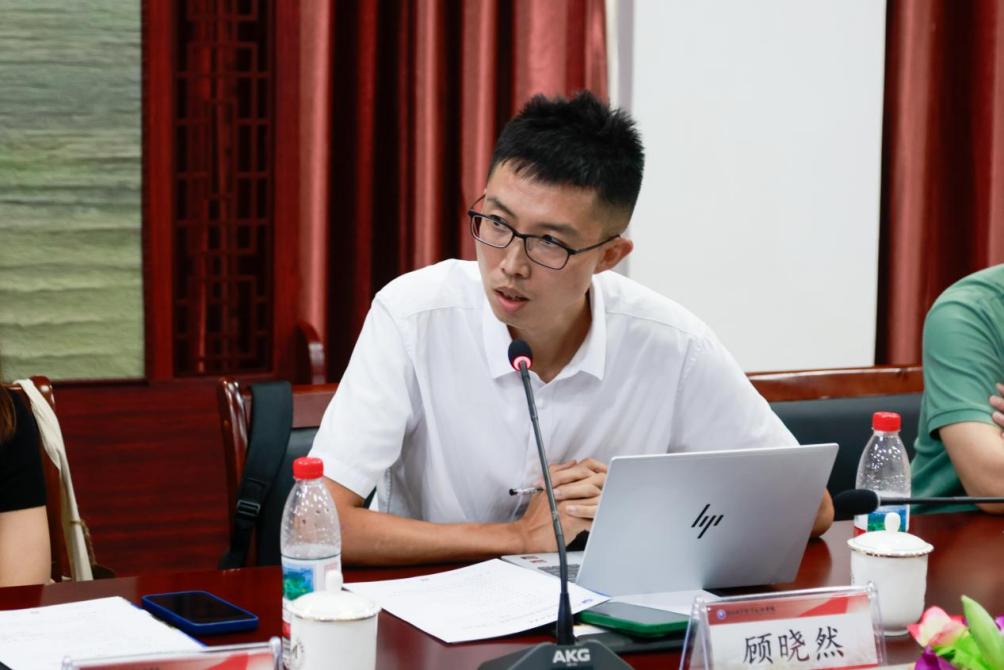
During the exchange, Ms. Gu Xiaoran highlighted that the "Belt and Road" E-Commerce Valley Initiative has been successfully selected as a "Service Education Powerhouse: Industry-Education Integration Project" by the Education Ministry’s Vocational Education Development Center. She noted that five physical centers have already been established across four ASEAN countries, demonstrating the project’s expanding influence. Given the solid foundation of China-Africa vocational education collaboration, both parties agreed to jointly develop a China-Africa E-Commerce Valley, focusing on mutual learning and win-win development in areas such as standard co-development, faculty exchanges, and the promotion of apprenticeship programs.This initiative aims to create a new model for Sino-African vocational education cooperation.
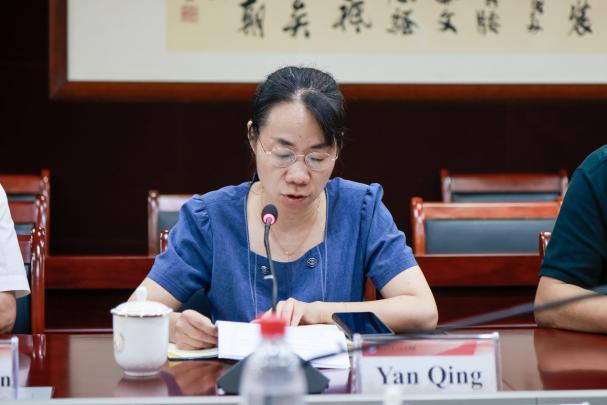
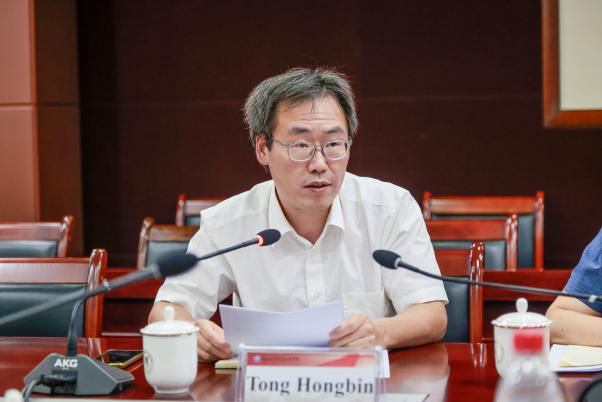
In the discussion session, Mrs. Yan Qing and Mr. Tong Hongbin presented overviews of the professional development in the School of Digital Trade and School of Business Intelligence, respectively. Participants engaged in interactive exchanges on topics including study-in-China programs,joint curriculum development,standard sharing, and industry-education integration, reaching preliminary cooperation intentions.The delegation also conducted a field visit to the university’s E-Commerce New Technologies and Business Models Exhibition Center, practical training facilities for relevant majors, smart classrooms, and student residential areas.

